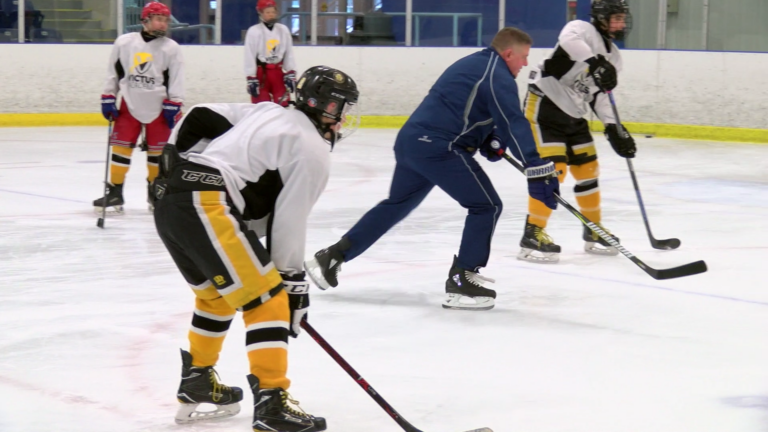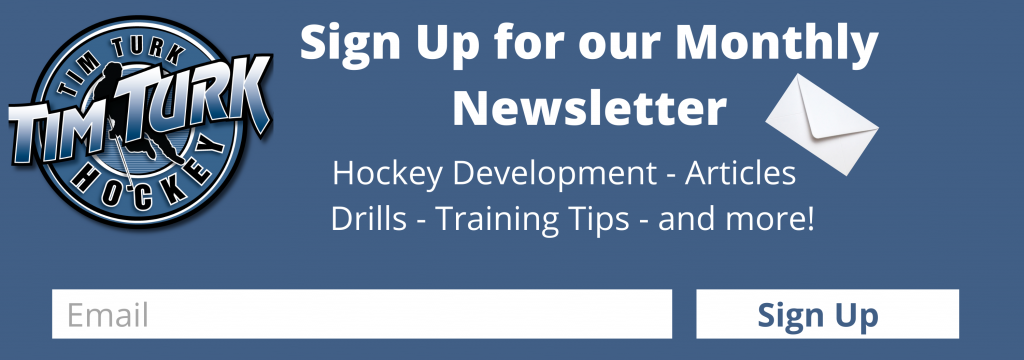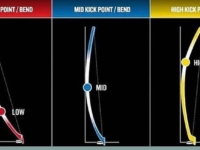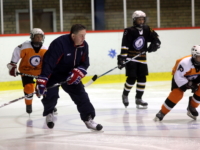Cognitive Training For Hockey Players
There is no doubt that the world of sports has changed significantly over the years. Today, most major sports are dominated by analytics and the science of probabilities. These calculations dictate everything from the player’s diet and sleep habits to how well they mesh with certain players on the ice. But another form of training and development has been popularized in recent years: cognitive training. This article will discuss how cognitive training is being used for athletes and where its place is in minor hockey development.
What is Cognitive Training?
Cognitive training is a non-physical form of training that can help develop the mental side of a player’s game, but isn’t strictly used for athletes. Cognitive training is used across the world of neurology and psychology as well, and is defined as the process of regular mental activities that can be used to improve cognitive function and ability.
So much of sports is mental these days. Athletes struggle with things like mental health and confidence. Everything they do is so much more magnified thanks to social media and the internet. Improving their mental strength and cognitive function can be a great way to ensure they remain confident on the ice and can perform without distraction.
Some examples of cognitive training include the memorization of lists, pattern detection, and speed recognition. Of course, when it comes to cognitive training in hockey, it focuses more on improving hockey IQ. What exactly does that look like? Let’s take a look at how hockey players are using cognitive training to improve their overall game.
Cognitive Training in Hockey
Cognitive training for hockey players helps to improve their hockey IQ and enhance their mental awareness on the ice. Everyone knows about on-ice training and improving skills like skating or shooting. Even physical training off the ice like in the weight room or dry-land training during the offseason. However, not enough players are making the effort to improve their hockey sense by taking cognitive training courses.
For hockey players, cognitive training places them directly in an on-ice situation where they need to think through what their next moves will be. By experiencing enough of these scenarios, players can improve their reaction time on the ice. It is akin to mental muscle memory that can kick in and take over a player’s actions when there is only a microsecond to react.
There are plenty of software platforms on the market that can help players learn cognitive training. Repetitive scenarios can help players improve skills like anticipation, focus, and decision-making. These programs can even be customized to target a specific skill that the player wants to improve at.
Cognitive Training for Minor Hockey: Is It Necessary?
Skill development in minor hockey has become an extremely competitive landscape. There is little that parents will not do to give their children an edge over their competition. For decades, hockey parents in Canada have dreamed of having their kids suit up for an NHL team. But today, with strict competition from the United States and Europe, we are seeing just how important player development programs are for the future of our sport.
So is there a need for cognitive training at the minor hockey level? It’s a controversial topic for sure. Pushing players at such a young age can put a lot of pressure on them, especially when it comes to their cognitive function. We have to remember that they are still developing both physically and mentally.
On the other hand, starting at a young age can be extremely beneficial for kids. There is no better time to learn and absorb information. Skills learned at a young age can stay with them well into adulthood.
If you envision a future for your child in hockey, then cognitive training isn’t a terrible idea. It can help them improve reaction time and anticipation as well as teach them to focus. Attention spans can be a frustrating part of raising children, especially in this digital age of social media and smartphones.
Does Cognitive Training Work?
As with any training, results can vary depending on the person. What we do know is that cognitive training is used by a large number of professional athletes, not just exclusive to hockey either. Everyone from football players to baseball pitchers uses cognitive training as a way to enhance their on-field abilities.
There are a large number of scholarly articles that have researched the efficacy of cognitive training. While many users have found that it can certainly improve the way they think about the sport, there are clear limitations. Players should not expect cognitive training to make them better and more talented players immediately. There still needs to be development of the physical skills involved that can work along with the cognitive training.
Also, the vast majority of athletes that underwent cognitive training were professional athletes. This means that by default, they are already at the very top of the sport they are playing, both mentally and physically. It’s hard to compare the effect of cognitive training for these athletes compared to minor hockey players.
Conclusion: Cognitive Training in Hockey
Cognitive training is a new way of strengthening the mental side of an athlete’s abilities. There has been a strong push in the sports world to complement physical training with cognitive training. Hockey players have been using it to improve on-ice decision-making, reaction time, and anticipation of developing plays.
The question on everyone’s mind is: does cognitive training work? If so, is it necessary for the early development of minor hockey players?
As with most things, cognitive training in hockey requires a bit of context. It is used primarily by professional or high-level athletes who already have fully developed physical skill sets. At the same time, younger players who are developing both mental and physical sides to their games can benefit from an improved focus and early development of hockey sense and IQ.
At the end of the day, cognitive training has been proven to be a useful tool for helping both athletes and non-athletes with brain development.






